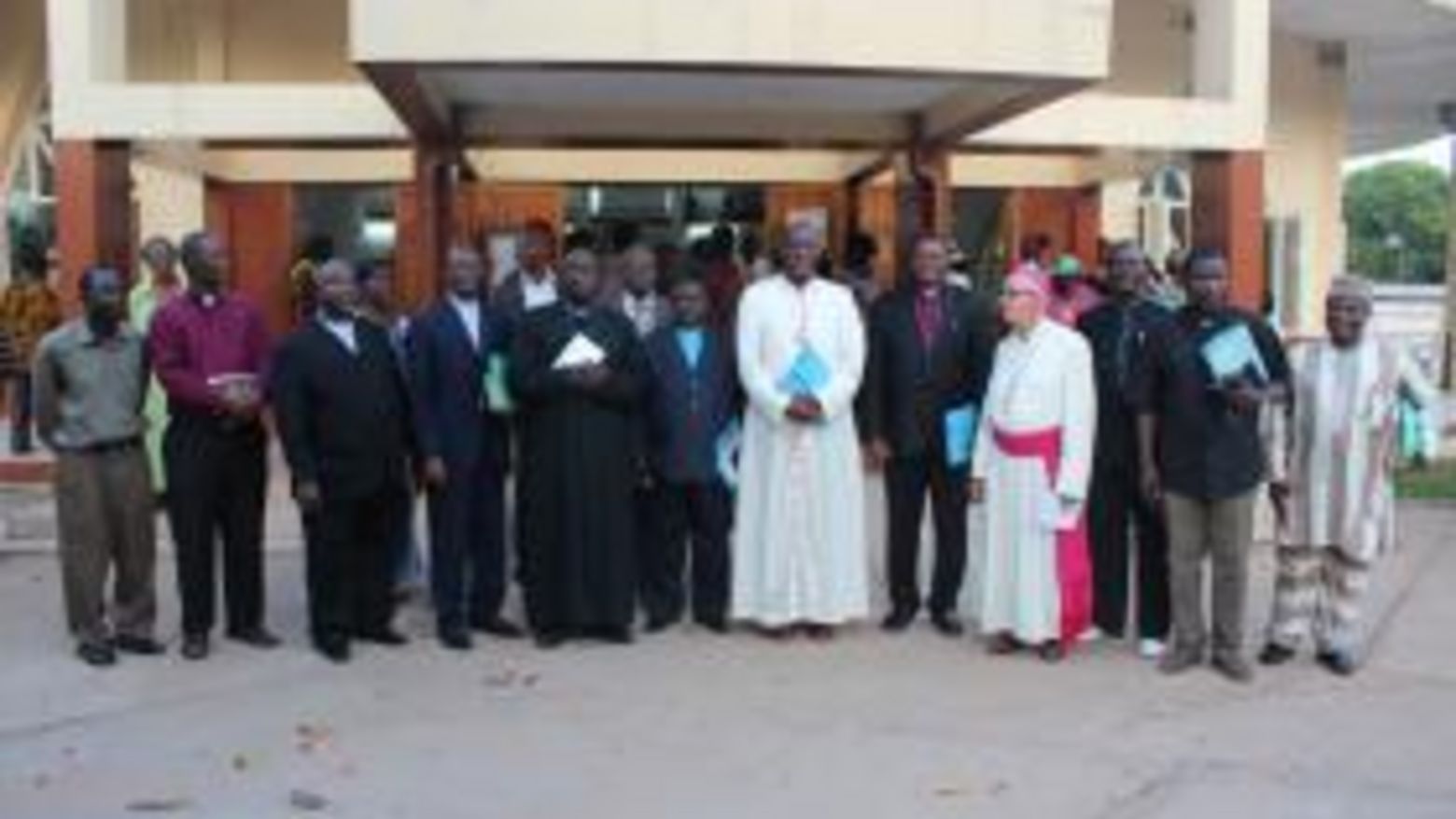Celebrating the churches’ week of action on food and nutrition 2013, the Ecumenical Advocacy Alliance announced in its October 2013 bulletin that, through its action during the week, the Fellowship of Christian Councils and Churches In West Africa is the “champion seed defender in Africa”.
The Fellowship of Christian Councils and Churches in West Africa (FECCIWA) and the Gambian Christian Council (GCC) - project partners of Brot für die Welt (Bread for the World) - joined in Banjul, the Gambia, to celebrate the global Churches’ Week of Action on Food. Throughout the week-long event, Churches in West Africa spoke about Seeds for Life in local congregations through sermons, theological reflection and prayer. Public debates were also held with decision makers in order to plant seeds of change and advocate for just and sustainable food systems in West Africa.
“Foreign seeds and high amounts of pesticides and fertilizers may increase yields for a few years, but they deplete our soils” explained Reverend Dr. Tolbert Jallah, Secretary General of FECCIWA. “As we lack control mechanisms, costs for people and the environment are unavoidably rising. Consumers are at risks and we endanger the whole sensible balance of our food systems.”
Events and debates highlighted that access to and control over natural resources, including seeds, is an essential aspect of supporting small-scale food producers, maintaining the health of our soils, safeguarding biodiversity and, ultimately, addressing hunger. “Churches are of the conviction that if indigenous seeds are not protected, and that farmers do not have access to their own seeds, their primary income is at risk,” said Reverend Jallah. “This will eventually undermine local food production and increase extreme poverty and hunger worldwide.”
The Fellowship of Christian Councils and Churches in West Africa (FECCIWA), in the name of its thirteen member countries advocates for better conditions that ensure sustainable access to sufficient and affordable food for our people. By the prophetic voice of churches we raise awareness on political efforts, which affect the development of African Agriculture; we communicate with decision makers and make use of our network of National Campaign Coordinators to reach out to our societies and church constituencies
The Ecumenical Advocacy is an international network of churches and Christian organizations committed to common advocacy on key issues.
The Food for Life Campaign aims to overcome hunger and to improve livelihoods in harmony with creation and social justice. Through the campaign, churches and Christian organizations all over the world aim to ensure that everyone has the right to adequate food.





